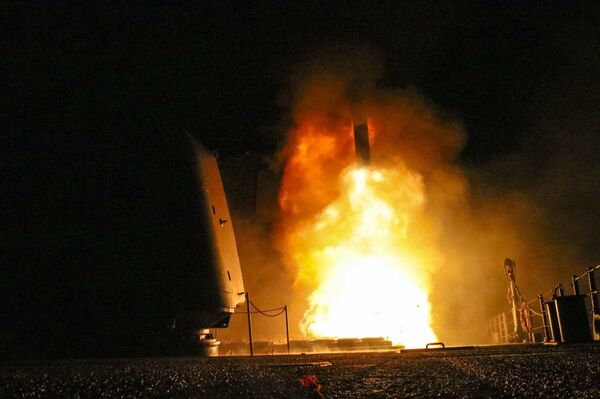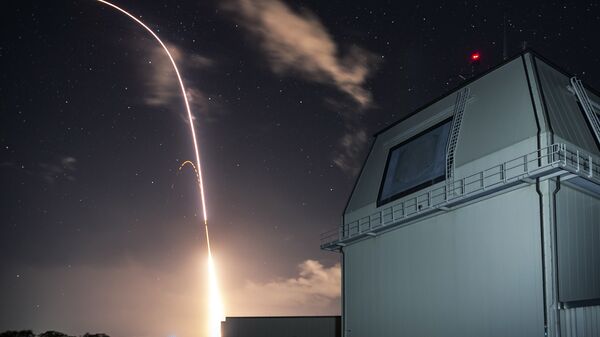Russian President Vladimir Putin has stated that Russia will be developing missiles, operating in ranges between 500 and 5500 kilometres, previously banned by the INF Treaty, which recently collapsed following Washington’s withdrawal from it.
At the same time, the president noted that Russia won't be deploying these missiles first. The statement is in line with previous ones by Russia, where the country vowed not to deploy non-INF compliant missiles, unless Washington does so. Putin also noted that the US is already holding talks with Japan and South Korea to deploy such missiles and added that they could potentially pose a threat to Russia.
"As we understand this [deployment] will be made under the pretext of countering threats from North Korea, but it will also cause certain and significant problems for [Russia]. These missile systems are likely to cover a significant portion of Russian territory […] Let me remind you that we have two major military bases in this region", Putin said.
Putin further added that Russia was correct when it suspected that the US has been testing missile systems, violating the accord, and now must respond appropriately. He pointed at American MK41 launchers, which serve as a basis for the Aegis Ashore missile defence system in Europe.
"The Americans kept assuring us that it's not true, [MK41 can't be used in strike capabilities] and now they’ve tested their new missile using the very MK41 launcher, meaning it has strike capabilities. I assume they tried to delude us. We're not deluded, but we will have to respond adequately", the president said.
Collapse of Decades-Old Arms Treaty
The US first threatened to withdraw from the Intermediate-Range Nuclear Forces (INF) Treaty in October 2018 and started the process in February 2019, citing alleged violations by Russia. Despite presenting all data on the missile that sparked Washington's concern in the first place and proving that it's INF-compliant, Moscow couldn't dissuade the US from the decision. In response, the Kremlin also announced that it would stop adhering to the arms treaty in June 2019, a month earlier than the US, accusing the latter of essentially shattering the accord.
Russia also reminded the US of own concerns about compliance with the INF, which it has been trying to discuss for years. In particular, the Kremlin was worried by the fact that Aegis Ashore air defence systems, deployed in Europe, were essentially re-made ship-based MK41s, capable of launching non-INF compliant Tomahawk missiles.

Moscow's concerns only strengthened after the US tested new Tomahawk-based missile operating within INF-banned ranges and using a ground-based version of the MK41 launcher just weeks following the withdrawal from the accord. Russia commented on the launch, stressing that it couldn't have been prepared in such a short time, meaning that the US had developed the weapon prior to its exit from the INF Treaty.
The INF Treaty was signed by the USSR and the US in 1987 and banned the development, production and deployment of ground-based missiles and launchers for them, operating in distances between 500 and 5500 kilometres.





